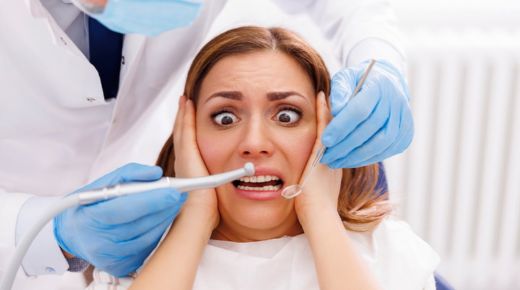Dental anxiety is a common issue that affects many people worldwide, often leading to ignorance of dental visits and, consequently, poorer oral health. This fear can stem from various sources, including past negative experiences, fear of pain, or even the sounds and smells associated with a dental office. However, regular dental care from an Encinitas dentist is crucial for maintaining overall health, and overcoming this anxiety is essential for better dental outcomes.
Here are some practical tips to help you feel more at ease during your dental visits.
1. Open Communication with Your Dentist
One of the most effective strategies for managing dental anxiety is to establish open communication with your dentist. Before your appointment, discuss your fears and concerns with the dental staff. A compassionate and understanding dentist will listen to your worries and work with you to make your visit as comfortable as possible. They can explain the procedures in detail, so you know what to expect, and this can help reduce your anxiety significantly.
2. Schedule a Consultation Before Treatment
If you are visiting a new dentist, consider scheduling a consultation before any treatment. This initial meeting allows you to familiarize yourself with the dental office and staff, which can help reduce anxiety. You can also use this opportunity to ask questions, voice your concerns, and understand the dentist’s approach to anxiety management.
3. Practice Relaxation Techniques
Incorporating relaxation techniques into your routine before and during your dental visit can help alleviate anxiety. Deep breathing exercises, for instance, can calm your mind and body. Before your appointment, try inhaling slowly through your nose, holding your breath for a few seconds, and then exhaling slowly through your mouth. Repeat this process several times to achieve a relaxed state.
Visualization is another effective technique. Close your eyes and imagine yourself in a calm, peaceful place. This mental imagery can distract you from your surroundings and reduce stress levels.
4. Bring a Comfort Item
Sometimes, having a personal comfort item with you can make a significant difference. A stress ball, a favorite book, or listening to music through headphones can help distract your mind and provide a sense of familiarity and safety in the dental chair.
5. Use Technology to Your Advantage
Modern dentistry offers several technological advancements designed to make dental visits less intimidating. For instance, some dental practices use virtual reality headsets to immerse patients in calming environments, effectively distracting them from the procedure. Noise-canceling headphones can also block out the sounds of dental instruments, which are often a trigger for anxiety.
6. Consider Sedation Dentistry
For those with severe dental anxiety, sedation dentistry might be an option worth exploring. Various levels of sedation, from mild (oral sedatives) to more profound (intravenous sedation), can help patients remain calm and relaxed during procedures. You can discuss these options with your dentist to determine the best approach for your situation.
7. Plan Your Visit Wisely
Scheduling your dental appointment at a time when you are least likely to be rushed or stressed can also help. In fact, morning appointments might be beneficial as you are not yet fatigued by the day’s activities. Also, avoid scheduling on days with other significant commitments that could add to your stress.
8. Seek Professional Help if Needed
If your dental anxiety is severe and these strategies do not alleviate your fears, you should consider seeking help from a mental health professional. Cognitive-behavioral therapy has proven effective in treating various phobias, including dental anxiety, and can equip you with additional tools to manage your fears.
Conclusion
While dental anxiety is common, it doesn’t have to prevent you from receiving the care you need. With the right strategies and support, you can overcome your fears and make dental visits a more pleasant experience, leading to better oral health and overall well-being. By taking proactive steps, you’ll be on your way to a healthier, happier smile.



